Friday Feb 20, 2026
Friday Feb 20, 2026
Tuesday, 16 August 2022 01:00 - - {{hitsCtrl.values.hits}}
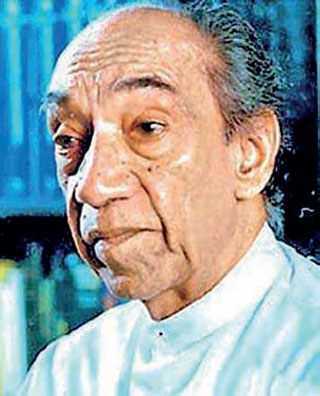
J.R. Jayewardene
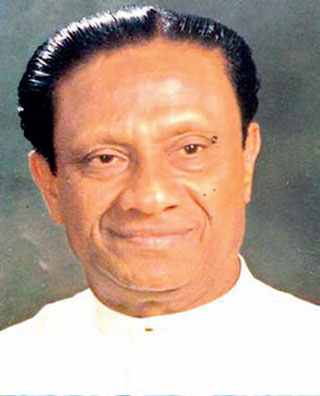
Ranasinghe Premadasa
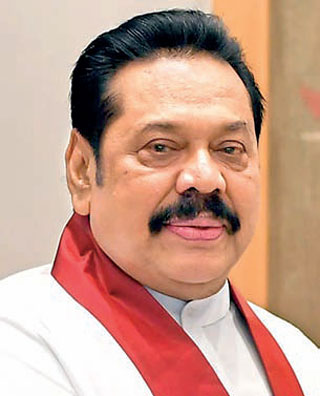
Mahinda Rajapaksa
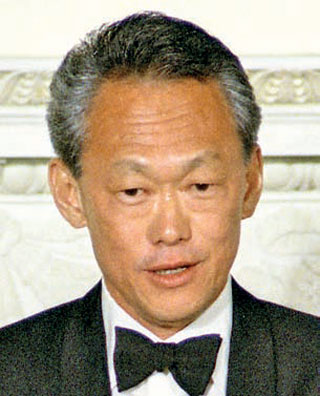
Lee Kuan Yew
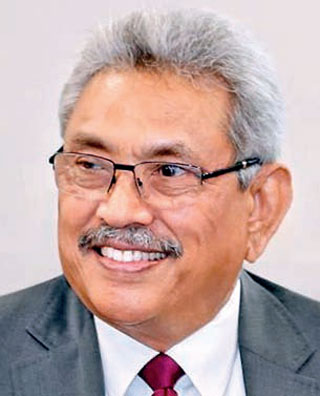
Gotabaya Rajapaksa
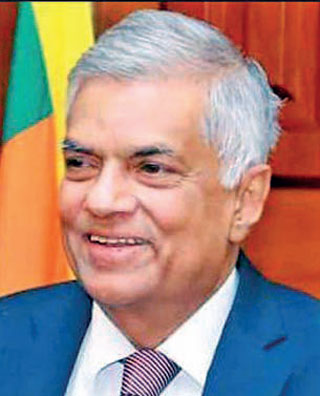
President Ranil Wickremesinghe
|
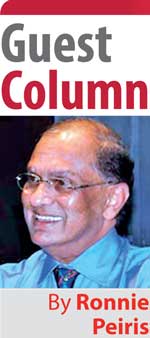 Sri Lanka’s current economic woes are a result of successive governments spending beyond their means without a priority of purpose and with no consideration of affordability, viability and sustainability, and citizens making hay while the sun shone by enjoying import-heavy lifestyles which were beyond the country’s means. Governance models which bred corruption and nepotism, ignored the pressing need for equal opportunity, disregarded meritocracy and permitted an unlevelled application of laws and regulation also contributed to the mess.
Sri Lanka’s current economic woes are a result of successive governments spending beyond their means without a priority of purpose and with no consideration of affordability, viability and sustainability, and citizens making hay while the sun shone by enjoying import-heavy lifestyles which were beyond the country’s means. Governance models which bred corruption and nepotism, ignored the pressing need for equal opportunity, disregarded meritocracy and permitted an unlevelled application of laws and regulation also contributed to the mess.
Further, Sri Lanka being a democracy where leaders are elected by popular vote, the propensity of contenders to promise more than what the country could afford was rife. What was, and is, not very apparent to the ordinary citizen is that the cost of such reckless actions, being government expenditure, were, and are, funded by internal, and external, cash flows such as tax revenue and debt and that it is such accumulated debt which is unfairly passed on to future generations.
Stated differently – governments give immediate benefits to the current generation of voters and pass the costs on to the future generations who are not yet voters. In a similar vein, leaders, in their quest to get re-elected, avoid making the tough calls even when the writing is clearly on the wall. They procrastinate, they postpone, and they shy away from taking the correct actions because of the fear of losing votes. Trade deficits, fiscal deficits, budget deficits are allowed to increase, unchecked, with no action plans to redress the situation. Burgeoning debt levels get refinanced with more costly debt in ways not too different to a Ponzi Scheme, and unknowingly, because of the scant interest in planning and monitoring, the magnitude of such debt creeps upwards with cancerous swiftness and subtlety and goes beyond control. It is all fun and games at the top.
Stated in the vernacular – it is a case of “Nava Gilunath, Band Choon” – (the music goes on, even while the ship is sinking). The lack of accountability and a performance motivation at national leadership levels, a rising sense of entitlement at the citizen level and the increasing disregard for the rule of law at all levels, prompted scholars, thought leaders and many performance-oriented, hard-working ordinary citizens to question the validity of an overly democracy driven governance model and led them to believe that what Sri Lanka needed was a benevolent dictator.
Benevolent dictatorship is defined as a system of governance where an authoritarian leader exercises absolute political power over the state, but is perceived to do so with regard for the benefit of the population as a whole, standing in contrast to the decidedly malevolent stereotype of a dictator who focuses only on his supporters and his own self-interests. A benevolent dictator may allow for some civil liberties or democratic decision-making to exist, through public referendums or elected representatives with limited power, and often makes preparations for a transition to genuine democracy by a specified date during or after his term. It was such a benevolent dictator who the Sri Lankan populace sought, when they elected Junius Jayewardene (JR) as their second President in 1978, Ranasinghe Premadasa as their third President in 1988 and Mahinda Rajapaksa as their fifth President in 2005. I have deliberately, and specifically, mentioned these three persons only, because it is my personal view that they had the vision, charisma, popularity, and boldness to change the course of Sri Lanka’s economy. It is noteworthy that the citizens, and the parliament which represented them, gave all the elected executive presidents near unfettered executive decision-making powers through the 1978 constitution and amendments thereof. It was an operating licence which facilitated a benevolent dictatorship.
While there were some positives, initially, and that interpretation, too, is dependent on your ideologies and beliefs and your yardstick of success, there emerged a growing view, around 2017, that Sri Lanka required a “strongman” with a vision and an ability to get things done. The voting citizens, impressed by his role in ending the war, and enamoured by his effectiveness in beautifying the environs of Colombo and other cities, elected Gotabaya Rajapaksa (GR) as Sri Lanka’s eighth President in 2019. If JR’s 1978 constitution was bad in hindsight, the powers conferred on GR per the 20th Amendment in 2020 was downright appalling.
Despite a clarion call, in 2015, for a diminution of the powers of the executive president and an enhancement in the powers of the parliament and an anticipation of a “once bitten, twice shy” stance of voting citizens and representatives of the voters in parliament, legislators enabled the passing of the 20th Amendment, an amendment which blatantly violated the principles of “checks” and “balances” in organisational design. It was political suicide. History showed that GR lacked the basic attributes of leadership in leveraging the wide-ranging powers availed to him in working for the benefit of the citizens.
Although, constitutionally, he was bestowed with the powers of a dictator, in practice, he did not have the capability to use it, nor the affinity to act in a manner beneficial to the population. On the contrary, his actions were perceived, by the masses, as being beneficial to his kith and kin and his supporters. The outcome was an uprising of the disenchanted citizenry leading to his hurried exit from the political arena, at least for now. Enter Ranil Wickremesinghe. Judging by his recent actions, he appears to be favouring an authoritarian style of leadership in governing, particularly in dealing with the “aragalaya” protestors. At the same time, he has made statements of intent which promises benevolence. The proof of the pudding is in the eating it is said. The citizens of Sri Lanka will assess its taste and make known their judgements very soon. Let us wait and see. Understandably, patience is wearing thin!
In the 74 years since independence, Sri Lanka has elected Prime Ministers and Presidents who have displayed leadership styles ranging from those of a democratic leader to those of a benevolent dictator. The introduction of the JR inspired executive presidency was a key moment in Sri Lanka’s history when the governance model underwent a paradigm shift from a parliament driven democratic model to an individual centric benevolent dictatorship. 74 years after independence and 44 years after the introduction of JR’s executive presidency, Sri Lanka has little to show in evidencing that its people are happy and content and begs the question – “What form of leadership is best suited for our country in the present?”
Generous proportion of democracy, tinged with dashes of autocracy, or enforced discipline as one may call it, co-exist in countries or organisations which have been deemed successful on a sustained basis. Whilst the yardstick of success will differ from person to person, from community to community and from age group to age group, based on their ideologies and wants, surveys reveal that there is no one pure form of leadership style which consistently produces positive outcomes. However, what we know for sure is that citizens and employees are, in general, inspired by a purpose, a cause, a vision. Once inspired, they are, usually, committed to its fruition provided the setting is right – a setting where their voices are heard, their ideas are considered and the opportunities of their physical, and emotional, involvement in strategy formulation and execution, exist.
It has been found that a “reasonable person” striving to satisfy his individual needs and wants, usually acts in the interests of his country and/or company when he is made to feel that he belongs. Creating genuine feelings of belonging under an overarching democracy, in one’s constituents, followers and teams is a critical factor in enhancing engagement and performance and in achieving stated goals. Empirical evidence confirms that the probability of achieving such goals through a democratic, participative, and collaborative styles of leadership is higher than through authoritarian styles however well intended they may be. To quote Hugo Black, American politician, and lawyer: “Loyalty must arise spontaneously from the hearts of people who love their country and respect their government.”
No discussion on leadership styles is complete without a mention of the achievements of Lee Kuan Yew a benevolent dictator, who with his authoritarian style of leadership transformed an ethnically tense, mosquito riddled, fishing village with a poor port known for its mudflats, into an ultra-modern metropolis within a single generation. Of the dictators such as Ashoka the Great of India, Frederick the Great of Prussia, Mustafa Kemal Atartuk of Turkey, and Josip Broz Tito of former Yugoslavia, just naming a few, who are thought to have been benevolent to their citizens, Lee Kuan Yew (Lee) will be considered as the best among equals.
In the fifty plus years he was involved as a mover and shaker in Singapore, 31 years as Prime Minister and 20 years as Senior Minister and Mentor to the Leader, he ruled Singapore with a peculiar brand of soft authoritarianism. Lee’s party, the People’s Action Party (PAP) continues to operate, even as of date, under the operating principles established by its indomitable leader. Commentators have described these principles as a form of “calibrated coercion,” an intelligent way to maintain the hegemony of the state while keeping people happy. “Keep the people well fed and they won’t revolt” is the thrust and tag line.
Placing the rags to riches story of Singapore, in context, using popular indicators – Singapore now boasts of a land mass of 720 square kilometres (1965; 521 square kilometres), a population of 5.7 million (1965; 1.8 million), a Gross Domestic Product of $ 425 billion (1965; $ 975 million), a Per Capita Income of $ 61,000 (1965; approx. $450) and an Unemployment Rate of approx. 3.0% (1965; approx. 9.0%). Its foreign reserves in May 2022 was $ 336 billion and approximately 80% of Singaporeans live in public housing. In terms of materiality – an exceptional quality of life, for sure.
While opinions may differ about the quality of life, the facts are stubborn in confirming that Singapore is a model of economic development. A joint study of 165 countries conducted by the renowned Fraser Institute and Cato Institute, in 2021, ranked Singapore as #2 in the world in Economic Freedom. However, the same study ranked Singapore as #48 in Human Freedom and # 88 in Personal Freedom. Reporters Without Borders an international non-profit and non-governmental organisation with the stated aim of safeguarding the right to freedom of information, ranked Singapore as #139 (out of 180) in the world, in Press Freedom, as per their latest report. Although the Happiness Report – 2022, released by the United Nations Sustainable Development Solutions Network, ranks Singapore as #27 in the world, one must weigh all the other factors, which matter to him, in deciding whether life in Singapore is his cup of tea.
The mood in Singapore in the 1990s, though a softer version now, is captured in an interview given by Lee in 1994 when he saidZ: “Nobody doubts that if you take me on, I will put on knuckle-dusters and catch you in a cul-de-sac. If you think you can hurt me more than I can hurt you, try. There is no other way you can govern a Chinese society.” In a similar vein, J.B. Jeyaratnam, who was Lee’s regular political tormentor, stated, in 2005: ”Singaporeans are like fleas, they are trained to jump so high and no farther. Once they go higher, they are slapped down.” As is evident from the previously mentioned, there is a definite trade-off between the Singapore styled Economic Freedom and Personal Freedom. Whilst Economic Freedom and Personal Freedom are not, necessarily, mutually exclusive, the bang for the buck will be louder in the ear by what one prefers in his heart.
“Give me the liberty to know, to utter, and to argue freely according to conscience, above all liberties,” said John Milton, British poet and intellectual. Looking at all this as a Sri Lankan- What will the citizens of Sri Lanka prefer? High Economic Freedom, High Personal Freedom, or a healthy mix of both. Also, can we identify and/or envision a leader who matches what Lee described himself as;-”I’m not saying that everything I did was right, but everything I did was for an honourable purpose.”
Recent studies indicate that most nations and organisations which have enjoyed prolonged periods of prosperity, wealth and stability are those who followed, or are following, democratic practices. Authoritarian regimes, with a few exceptions, have collapsed or are being forced to reform in the face of emboldened citizens seeking personal freedom and greater individual choice. It is becoming increasingly apparent that democracy has been, and is being, widely accepted, and embraced, in recent times, not because it is a populist, fad-like, youth-driven, yearning for human rights, but because it is the most efficient form of social organisation in an era where constant change is the order of the day and the quick adaptability to change is critical not just for survival, but also for development and growth.
Given that discussion, participation, and collaboration are the cornerstones of democracy, it caters well to the ever-changing demands of contemporary society and the aspirations of the Gen Zs and the Millennials of society. Gen Zs, it must be noted, are continuing to come of age and are showing early signs of growing into engaged and conscientious stewards of our world by being socially-minded and by being independent thinkers who recognise their responsibility in shaping a more equitable future for all. From a Sri Lanka perspective, the Baby-Boomers, Gens X and Gens Y must accept that the burden of our sins have been passed on to the Gen Z’s and the Millennials and that they have the right to feel aggrieved.
It is against this backdrop that enlightened businesses, and governments, are increasingly deploying inclusive strategies. Gone are the times when “Old” was “Gold.” While the newer companies are booming on the back of inclusive operating models which are more accepting of diversity, more and more long-established companies, with staid traditions, are recognising the absence of creativity and vitality in their organisations and are enlisting the support of social scientists in training, skilling and developing their staff to imbibe attitudes and behaviours which the wider society may have regarded as anarchic even as recent as a decade ago. Status prerogatives, social barriers and traditional concepts are giving way to new thinking. Not including them in our strategies, both long-term, and short-term, will be a missed opportunity and a huge mistake.
Present Sri Lanka is not immune to this new thinking. Embittered by the negative outcomes of years of poor governance, the citizens of Sri Lanka, spearheaded by the youth, are clamouring for a major systemic change. History confirms that democracy becomes a functional necessity whenever a social system struggles for survival under harsh and trying circumstances. The democracy referred to here is not unbridled permissiveness or “laissez-faire” but a model of governance which accommodates: free and open communication regardless of rank and power; consensus as opposed to coercion and compromise representing temporary appeasement; decision-making driven by technical competence and knowledge rather than on individual whims and fancies; an atmosphere which permits emotional expression even when the goals, and objectives are predominantly task oriented; and a willingness to cope, address and mediate, on the inevitable conflict between citizens and the nation and employees and the organisation.
It is my view that the authoritarian style of Lee will not be effective in the present Sri Lanka. We have, in the last 44 years, experimented with our version of Singapore’s equivalent of benevolent leadership. It has not worked – not because, it is impossible, but because we have not identified focused leaders who portray selflessness and nobility of intention, leaders who are able to balance democracy with discipline and produce benevolent outcomes. Further, it is too person centric. Power in the wrong single hand is a recipe for disaster. In a land of 22 million people, there are plenty, and more, individuals who have the leadership qualities to take our country from its current doldrums to a state of ecstasy, a state teeming with empathy, caring and contentment. Sadly, given our conservative and safety-first nature, we keep reverting to persons who are well past their “sell-by” date.
Success, they may deliver, but it will be temporary, if not grounded on the principles of democracy. Servility and obedience obtained at the point of a gun will not work. As stated by Simon Sinek, British-American author, and inspirational speaker: “Leadership is not about being in charge. Leadership is about taking care of those in your charge.”
(The writer is currently a Leadership Coach, Mentor and Consultant and boasts 50 years of experience in very senior positions in the corporate world – local and overseas. www.ronniepeiris.com.)